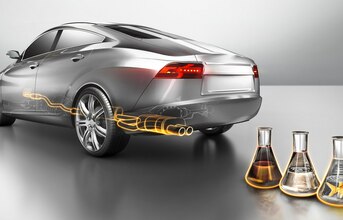
At the 36th International Vienna Motor Symposium, international automotive supplier Continental will highlight solutions that will help diesel engines meet future nitrogen-oxide (NOx) legislative limits.
Exhaust after treatment has become a core technology when it comes to diesel engines. This is due, in particular, to the stricter NOx limits of the Euro 6 standard, the even stricter super ultra-low emission vehicle (SULEV) limits for California, and the upcoming real driving emissions (RDE) test conditions.
"Future emissions systems must make real progress in terms of NOx emissions. This requires a complete understanding of the systems as well as individual components that are compatible with each other - from fuel injection to the final stage of exhaust after treatment," says José Avila, Head of the Powertrain Division and Member of Continental's Executive Board.
"With the incorporation of Emitec into the Continental Fuel and Exhaust Management business unit, we now have a range of technologies that is extremely beneficial, particularly when it comes to customising exhaust after treatment for different types of vehicles."
The solutions that will be presented in Vienna include a compact catalytic converter that can be installed close to the engine (close-coupled). This means it heats up faster and therefore starts converting untreated emissions earlier. The electrically heated catalytic converter (e-cat) does the same thing in hybrid vehicles.
It heats the catalyst to the right temperature when the combustion engine has been switched off for a long period to save fuel. In Vienna, Continental will also present a new "selective catalytic reduction" (SCR) procedure that improves injection of the reducing agent in the smallest available space.
Continued to next page



























